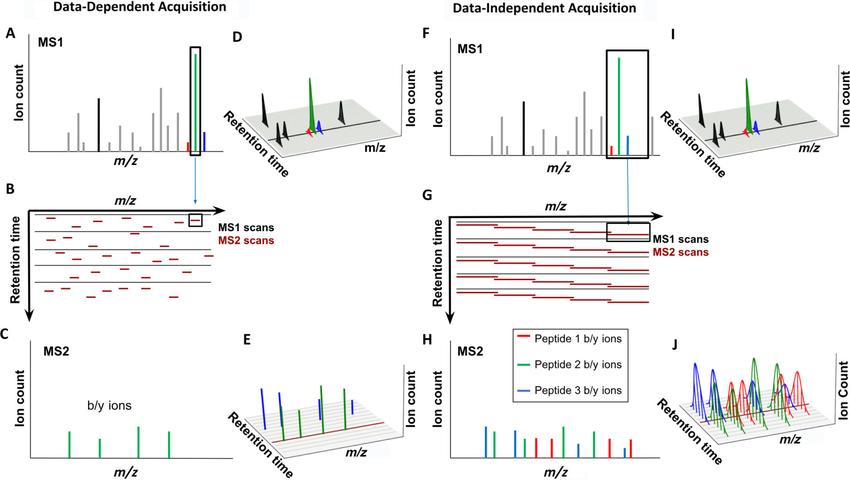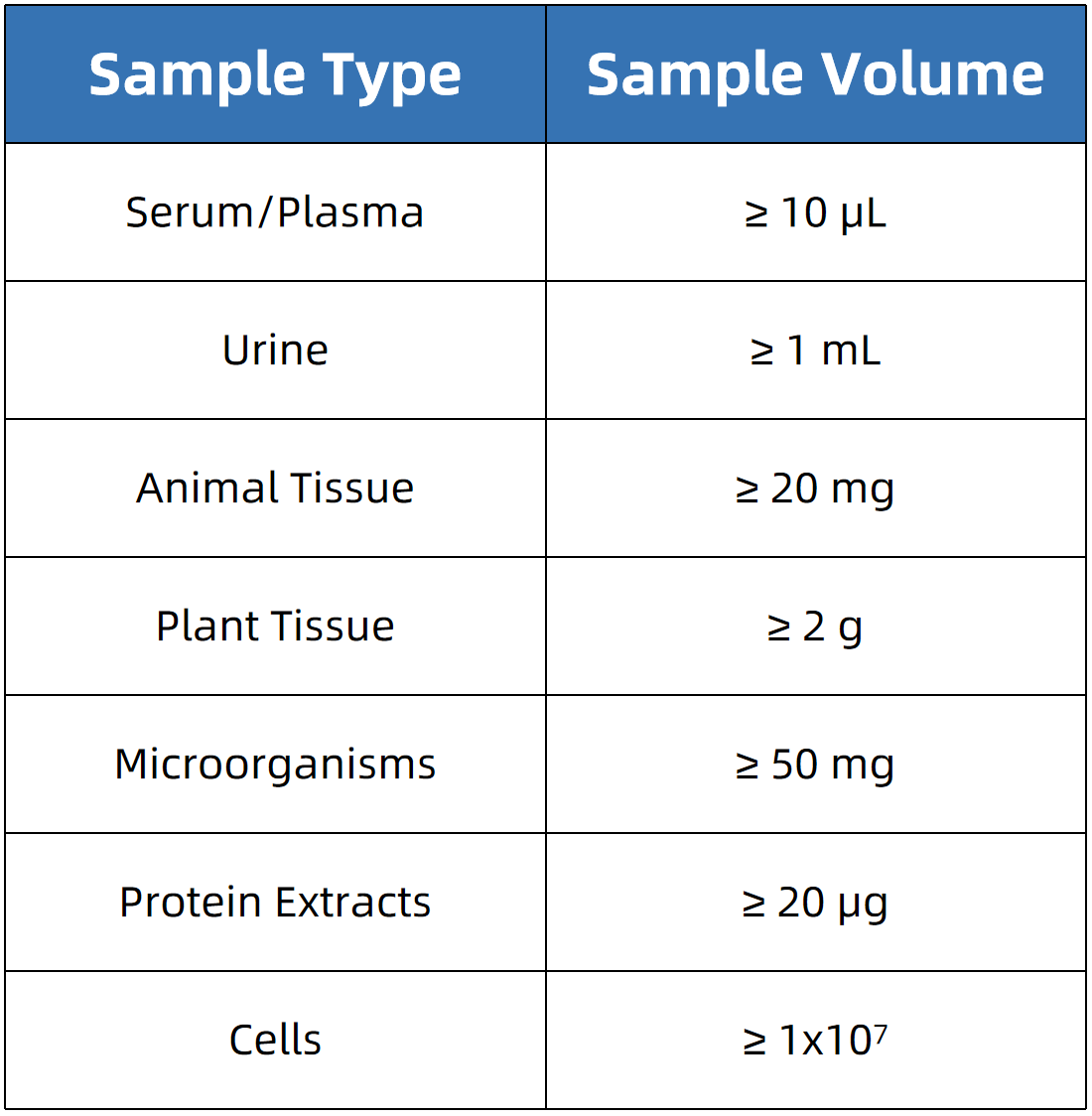DIA based Protein Quantitative Service
Data-independent acquisition (DIA) is a non-dependent data scanning mode, a holographic mass spectrometry data acquisition mode based on the electrostatic field orbitrap. After primary mass spectrometric detection, all ionized compounds of a given sample that fall within a specified mass range are fragmented in a systematic and unbiased fashion. The fragment ions of all precursor ions are collected, and quickly scaned within precursor isolation window to perform protein qualitative and quantitative analysis. Compared to data-dependent acquisition mode (DDA), DIA has better accuracy and reproducibility. The SWATH technique is a DIA technique that integrates the high-throughput detection of shotgun proteomics with the precise quantitative analysis of parallel reaction monitoring (PRM). It can quantify almost all detectable molecules in complex samples.

Pappireddi. N, et al. ChemBioChem. 2019.
Figure 1. Comparison of DDA and DIA approaches(A-E:DDA, F-J:DIA)
MtoZ Biolabs offers DIA based Protein Quantitative Service, including the AB SCIEX Triple-TOF 5600 plus high-resolution mass spectrometry system, which features fast scanning speed and quantitative sensitivity of tandem quadrupole mass spectrometry systems and integrates high resolution, accurate mass stability, high sensitivity, and high-speed scanning of the mass spectrometry system. You only need to send us your samples, and we will take care of all subsequent project matters, including protein extraction, protein digestion, peptide separation, mass spectrometric analysis, raw mass spectrometric data analysis, and bioinformatics analysis.
Service Advantages
1. Comprehensive Data Acquisition
DIA employs a mode that reduces interference from highly abundant ions and captures both high and low abundance signals comprehensively, enhancing data coverage by nearly 40%.
2. Enhanced Reproducibility and Stability
This method significantly improves the consistency of large-scale sample identification by nearly 40% and doubles quantitative precision.
3. High Quantitative Accuracy
The quantitation performance is comparable to that of the established SRM/MRM targeted techniques.
Sample Submission Requirements

For more sample details, please consult our technical team.
Applications
1. Biomarker Research
DIA provides unmatched reproducibility and stability in large cohort studies, making it ideal for biomarker discovery and validation. It enables simultaneous screening and initial validation, ensuring data traceability and addressing challenges associated with prolonged clinical sample collection.
2. Tumor Tissue Disease Subtyping
MtoZ Biolabs offers a comprehensive solution for large-scale DIA+DIA phosphoproteomics, optimizing disease subtyping by reducing missing data due to technical variability. This approach increases the proportion of valid data for classification and allows for flexible experimental designs without the constraints of sample grouping.
3. Comparative Studies in Agriculture and Forestry
DIA serves as an innovative approach for comparing multiple strains in agricultural and forestry research, enabling the creation of deep expression profile databases and facilitating mechanistic studies in a single analytical step.
Deliverables
1. Experimental Procedures
2. Relevant Mass Spectrometric Parameters
3. Mass Spectrometric Images
4. Raw Data
5. Protein Differential Analysis
6. Bioinformatics Analysis
Our services are designed to support your research with accuracy and efficiency, delivering high-quality data and insightful results.
MtoZ Biolabs, an integrated chromatography and mass spectrometry (MS) services provider.
Related Services
How to order?







